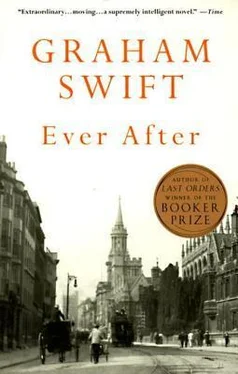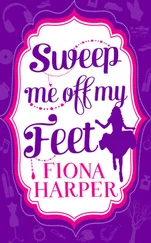And it was true: if I had an allegiance, it was to her, not to him. The image of my father rose before me, as inscrutable, as open to interpretation as it was deserving of belated loyalty. He must have known for weeks about the two of them. And even if the penny had dropped only late in the day, did suicide truly answer the circumstances? A former soldier, a man of action. If a bullet was to be involved, it should surely have been placed neatly between Sam Ellison’s eyes.
A recurring dream — the very emblem of my addled adolescence: Sam with a fresh, damson-coloured hole (and no sticking-plaster) in his forehead.
But perhaps Sam and Mother were only the last, ill-timed straw. I underestimated the dimensions of the man, this man who had left my life. During those strange, transitional months, as we moved from Paris back to Berkshire, as Mother married Sam and I reached my tenth birthday, the awesome realisation offered itself to me that my father had tried but had simply not been able to sort out the world. People die when their world will no longer sustain them. Duty, ambition and even, now, his wife had let him down. He was fifty-five years old. I can see him feeling the cool weight of the pistol. The “honourable way out”; a soldier’s solution. When you are out on an adventure … Suddenly death, not the vivid, vaunted death of the battlefield, but the image of himself as a duped nonentity, stared him in the face — and he rushed to meet it.
Lift the axe! Put the pistol back! Carry me back to that world of boulevards and ballerinas. To that songful, mirthful, deceitful apartment. Carry me back even to the innocence of that moment of icy, naked shock — I had never felt it before — round which my mother, by the école gates, cast her cloaking embrace. There was a space in the world occupied by my father, which would never be occupied by him again. The spring sun falling on Parisian shutters, Parisian cobbles, was gentle, kindly, beyond reproach. It fell on the fur collar of my mother’s coat and picked out of its filaments little pinpoints of gold. All that day I seemed to see that the sunshine was made up of countless particles of irreducible, indestructible, eternal gold.
And when she died, when my mother died, I was rushed back to that moment over forty years ago.
The last time I visited her, which I instinctively knew would be the last time I would see her alive, was one exceptionally warm, radiant evening late last September. The curtains, a pale salmon colour, were drawn in her private room, which gave it a ruddy, subdued glow, but here and there a chink let in a shaft of more golden light, in which specks twirled and twinkled. In a hospital (I thought) there should be no specks. But always, in any beam of light, there are these tiny, sparkling shoals. And in a flash I was transported back to that April day in Paris, to the memory of those little flecks of fire in her fur collar, to the memory of my face crushed in that fur collar, its smell and her smell, and the shapely strength of her body beneath her coat, of which her body now was a sad, prostrated parody.
The windows were open behind the curtains and, as her wing of the hospital overlooked a park, there floated in the smell of cut grass, the occasional ricochet of playful voices and the gentle pok-pok of a tennis game in progress. It was as though she had expressly arranged the circumstances of her death so that they might seem the least fearsome, the least inimical to life.
She had already displayed, even as her days became numbered, her contempt for the fear of death and her disdain for those who fell prey to it — who lived their lives, as she put it, as if they deserved “a special pass.” It was an impressive and impressively timed demonstration. Never before had I heard her enlarge so much on her family, my forebears, about whom, so it would seem, a mixture of shame and scorn had hitherto kept her quiet. It was as if, now the end was near, she was driven reluctantly back to the other extremity of her life, to her origins and ancestry.
She had scoffed at Sam’s recent researches in this area, his absurd pedigree-hunting, but also humoured him, as she always humoured Sam, as you might indulge a child. But then Sam, for all his businessman’s bravado and native robustness, had a different attitude to death from my mother, as both she and I knew well from times gone by. If I had wanted to confirm it (and gain a little more cheap revenge), I need only have stepped out of that hospital room and along the corridor, as indeed I did later, to where Sam was waiting (I was first, he was next), an expression on his face, despite the mellow warmth of that evening, as if he were sitting in a room made of ice.
I’m glad death took him quickly and unannounced and, as it were, in flagrante .
For all her vocal powers, for all her capacity to chatter, squeal and, sometimes, shriek, my mother was never an eager raconteuse . I think she regarded reminiscence and tale-telling as a kind of weakness, an avoidance of the central issue of life, which was to wring the most out of the present. I never received from her, any more than I did from my father — perhaps this is why I became such a bookworm — my due dose of bedtime stories. Yet at the very end I was suddenly treated to a final and, so it seemed, irrepressible bedtime story — me, this time, at the bedside — of her remembered sires. And though the story had its moral, though she seemed to summon these ghosts only to arraign them for their folly (rather than to say she would soon be joining them), I wish she hadn’t left it so late. I never knew they were such a colourful bunch.
There was, first of all, my grandfather on my mother’s side, George Rawlinson, who died before I was born and of whom I knew only that he had been a medical man and, guessing from my mother’s silence, that some misfortune best not talked about had befallen him. He was in fact a surgeon at Guy’s Hospital, before whom had once lain a brilliant career in the then still-infant neurological branch of his profession. A pioneer brain surgeon, no less.
Who has heard of George Rawlinson? Who has heard of the Rawlinson Forceps, to which George, vainly wooing posterity, gave his name and on whose subcranial purpose I would rather not dwell (though my mother did not shrink from describing it). My grandfather’s path to eminence had seemed altogether assured until one day in 1923, when either his sound judgement or his sure fingers failed him just once. In came a sick but restorable young man; out came a permanent vegetable — who just happened to be the darling son of a Lord. Result, by stages: scandal, divorce, penury.
Then there was George’s older brother, my great-uncle, Rupert Rawlinson: Major, formerly Colonel Rawlinson; “Ratty” Rawlinson, as he was apparently known to his intimates—“Uncle Ratty” as he was known to my mother. It was in some lesser-known campaign of the Great War — Macedonia? Mesopotamia? — that his military career, likewise seemingly destined for stardom, took its calamitous turn. The wrong decision at the wrong time, an order given or not given that should not or should have been given. An inglorious, unglorifiable blunder. Result: court martial, demotion, ignominy.
My great-uncle did his best to outlive this disgrace, at least in the strictly numerical sense, since he died aged eighty-one and was still lingering on shortly before I was born. Yet according to my mother — and I am repeating now what she told me, brazenly enough, when her own death-warrant had effectively been signed — it was craven fear of oblivion, the desire to cheat death by the vain quest for distinction, that was the root of the matter, as much with Ratty as with George.
Читать дальше












